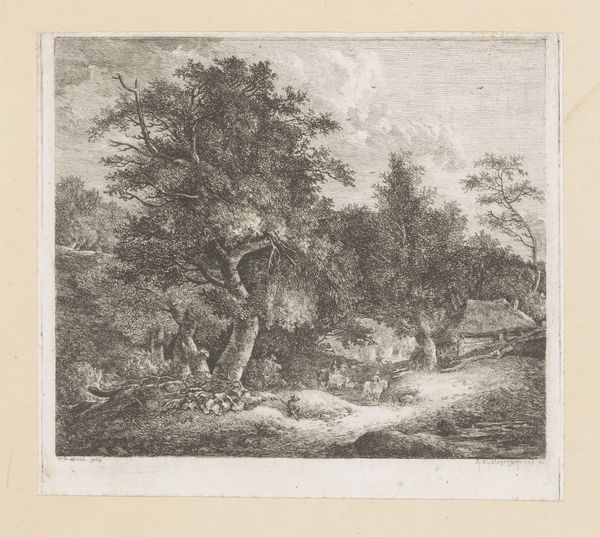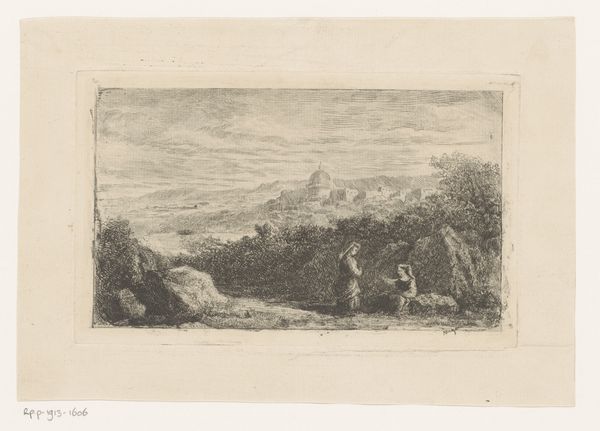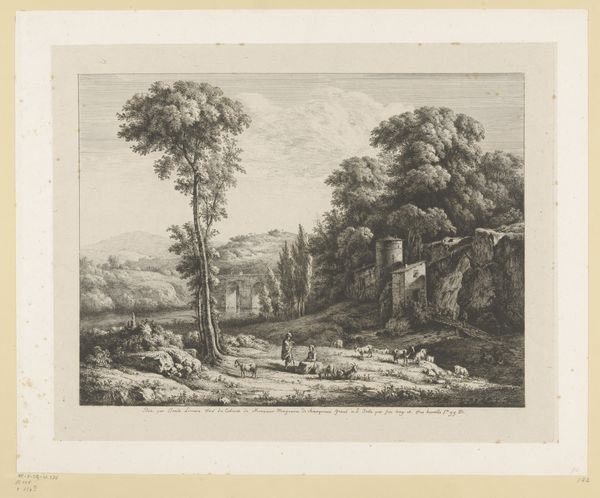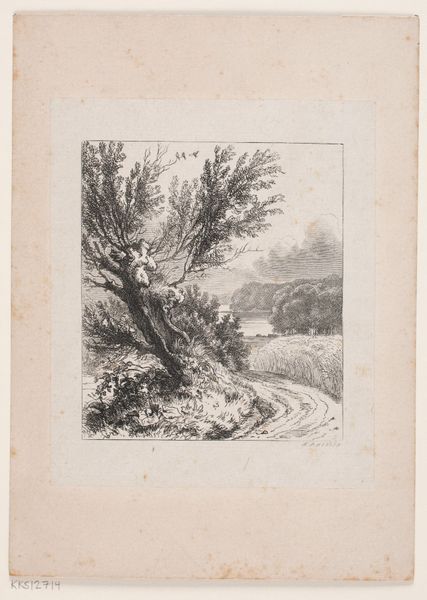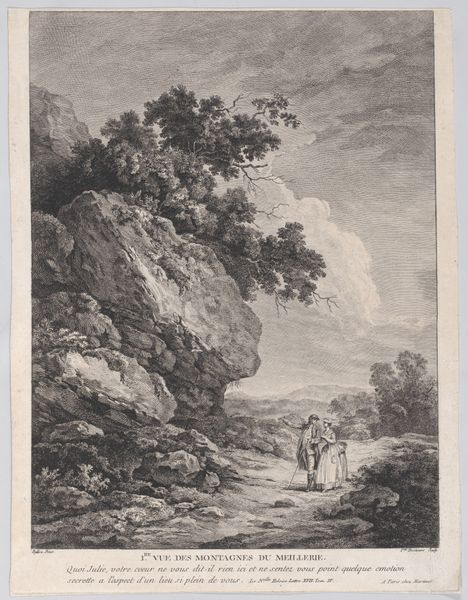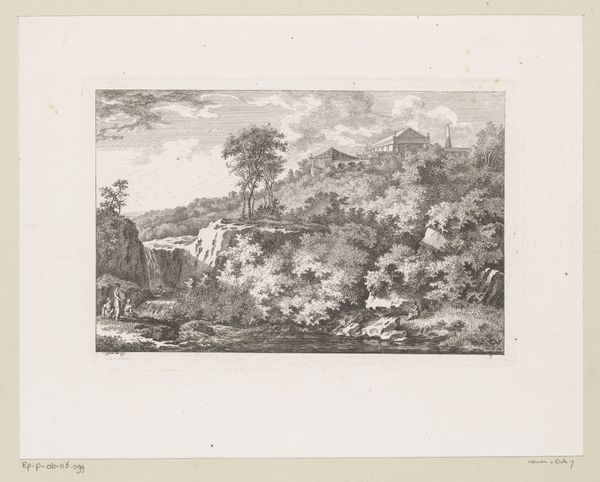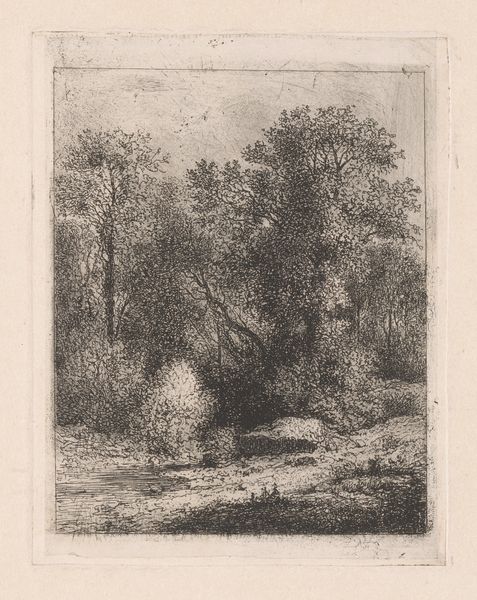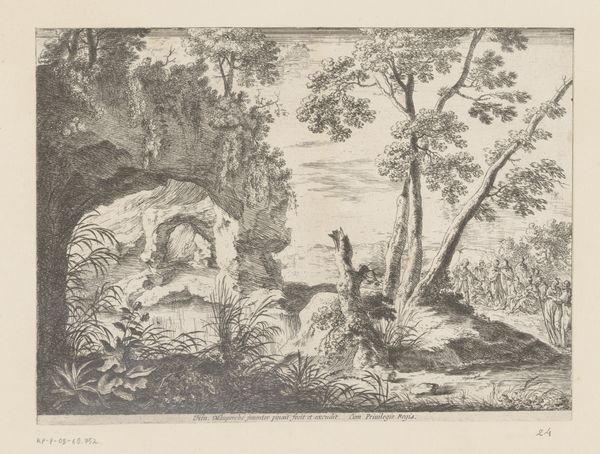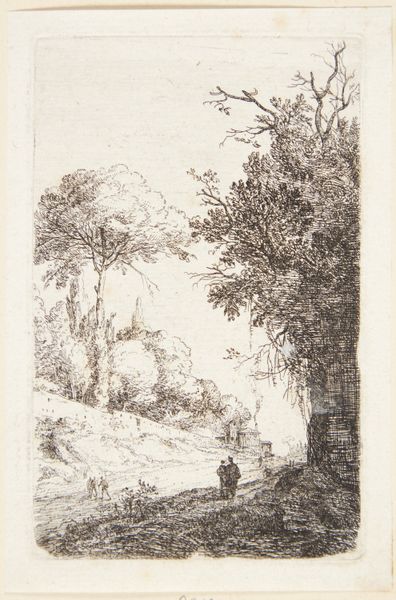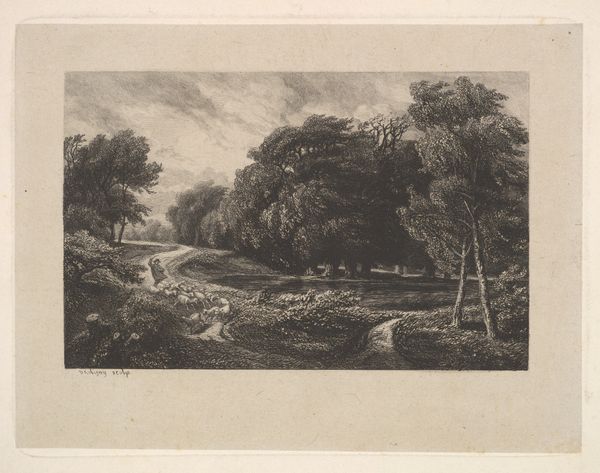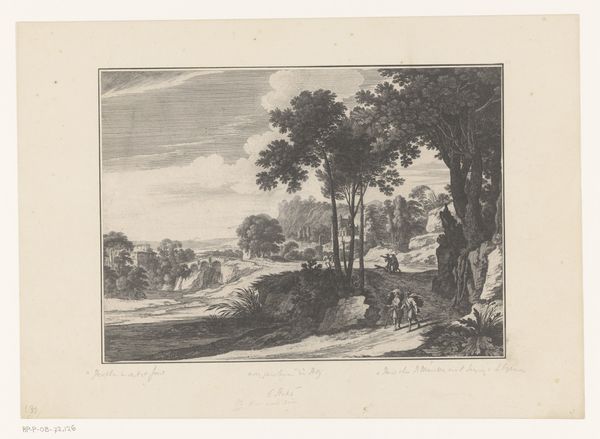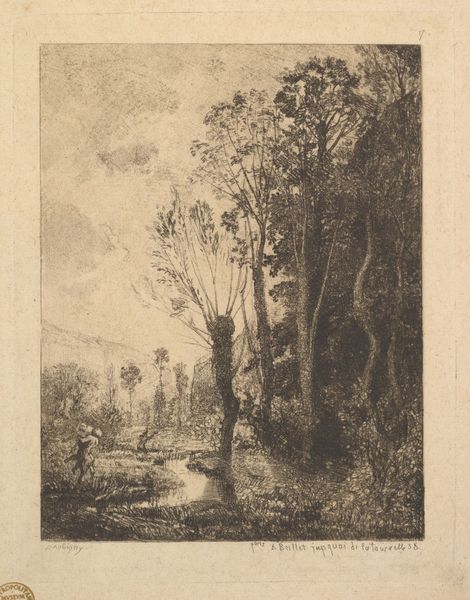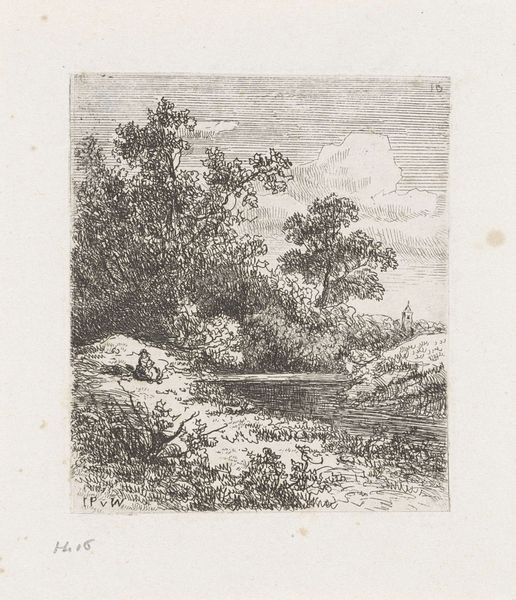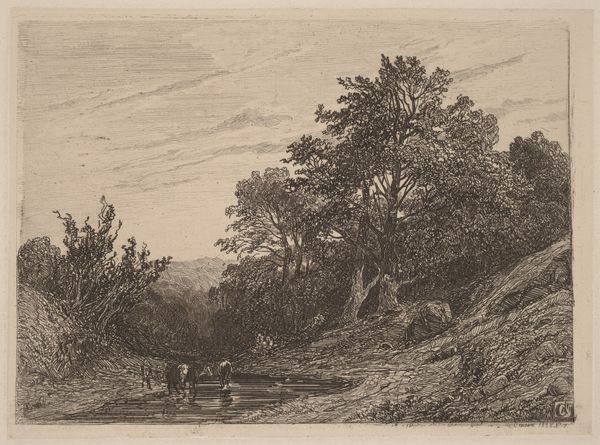
Landschap met man en jongen op pad onderlangs een rots 1739 - 1804
0:00
0:00
print, engraving
# print
#
landscape
#
genre-painting
#
engraving
#
realism
Dimensions: height 125 mm, width 125 mm
Copyright: Rijks Museum: Open Domain
Editor: So this engraving, "Landscape with man and boy on a path below a rock," probably dating to the late 1700s, caught my eye with its detailed lines. The looming rock formation seems almost like a watchful figure. How do you interpret this landscape? Curator: I see echoes of the Romantic era's fascination with nature, not as a gentle pastoral scene, but as a powerful, almost spiritual force. Do you notice how the artist positions the figures in the landscape? Editor: Yes, the man and boy are small in comparison to the rock, which emphasizes the grandeur of nature. It reminds me of "wanderer above the sea of fog". Curator: Precisely. The scale suggests something further: The small figures also signify mortality and transience within a much larger, enduring world. That rock could represent permanence, memory, and even, perhaps, a form of judgment. Think of similar monumental natural formations throughout history that have been laden with such symbolism. Editor: So, the artist isn't just depicting a landscape; he is suggesting something about our place in it? Curator: Indeed. The image of a man and a boy could allude to ideas of journeying, pilgrimage, even a symbolic passing of knowledge between generations. How else can these figures relate to one another? Editor: Now I wonder if their position implies they are following the correct life path. Curator: Interesting perspective. Considering this and our earlier interpretation, one must acknowledge the layers of symbolism embedded in a seemingly simple landscape scene. Editor: This piece has encouraged me to think deeper than initial impressions.
Comments
No comments
Be the first to comment and join the conversation on the ultimate creative platform.
